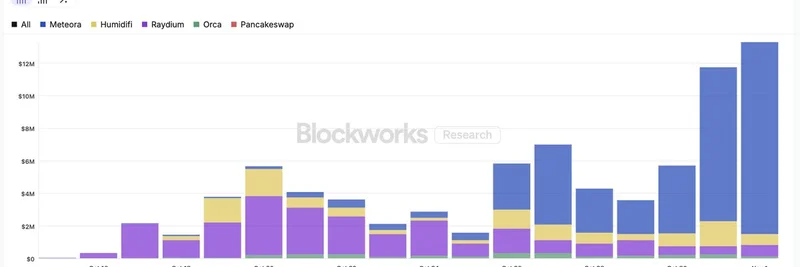In the fast-paced world of blockchain and meme tokens, where devs are churning out smart contracts faster than viral cat videos, a recent tweet from @TheGingerBill has sparked some serious chatter. He's the creator of the Odin programming language and dropped a bombshell article transcribing a lively debate from "The Standup" YouTube video featuring himself, @ThePrimeagen, @teej_dv, and @josevalim (the mind behind Elixir). The topic? "Package Managers are Evil." Yeah, you read that right. But before you dismiss this as just another programmer rant, let's unpack how this ties directly into the meme token ecosystem and why it might be messing with your next big launch.
First off, what's a package manager anyway? Think of it like a super-efficient butler for your code. In programming, packages are bundles of reusable code—libraries or modules that save you from reinventing the wheel. A package manager, like npm for JavaScript or Cargo for Rust, handles downloading these packages, sorting out their dependencies (the other packages they need to work), and making sure everything plays nice together. Sounds handy, right? Well, according to this crew, it's a one-way ticket to dependency hell.
The discussion kicks off with Ginger Bill clarifying some basics that devs often blur together: packages themselves (no problem), repositories where you find them (like GitHub or npm's registry—super useful for discovery), build systems (tools to compile your code), and finally, package managers. The evil lies in the managers. They recursively download dependencies—your package needs A, A needs B, B needs C, and suddenly you've got a massive tree of code bloating your project. This leads to what's jokingly called "sending you to hell quicker," especially in languages like JavaScript where multiple managers exist, birthing monstrosities like package manager managers. (Yes, that's a thing—tools to manage your managers.)
One standout example from the chat is JavaScript's ecosystem. With npm, yarn, and others competing, definitions of what a "package" even is can vary, causing chaos. Contrast that with Go, which has a solid standard library (batteries included, as they say). You can build a web server without third-party libs, keeping things lean. Elixir's Jose Valim chimes in here too, noting how a well-defined package concept in the language prevents a lot of this mess.
There's even a nerdy Star Trek reference—the "Klingon Approach," poking fun at redundancy in systems (Klingons have backup organs, get it?). It's all hyperbolic, sure, but the point sticks: poor package management can lead to bloated, insecure, and unmaintainable code.
Now, how does this hit home for meme token enthusiasts? Meme tokens live on blockchains like Ethereum, Solana, or Base, where smart contracts are king. Developing these often involves languages like Solidity (which leans on JavaScript tools like npm for Truffle or Hardhat frameworks) or Rust for Solana programs (using Cargo). If you're whipping up a token with fun mechanics—like auto-liquidity or reflection rewards—you're likely pulling in libraries for math, token standards (ERC-20, anyone?), or integrations.
But here's the rub: dependency hell can introduce vulnerabilities. Remember the infamous Parity wallet hack or supply chain attacks via compromised npm packages? In the meme token space, where projects launch in days and audits are sometimes skipped to ride the hype wave, a shady dependency could rug your whole community. Plus, bloated dependencies slow down deployments, jack up gas fees, and make debugging a nightmare. Imagine your dog-themed token failing because a transitive dependency (something your library's library needs) has a version conflict.
The pros suggest focusing on languages with strong standard libraries to minimize third-party reliance. For blockchain devs, this might mean sticking to core Solidity features or using vetted frameworks like OpenZeppelin, but always vetting dependencies manually. Tools like yarn's resolutions or npm audits help, but the real fix is mindful design—define your packages clearly and avoid over-reliance on managers.
If you're building the next big meme coin, take a cue from this debate: keep it simple, audit your deps, and maybe skip that extra library if you can code it yourself. Check out the full transcription on Ginger Bill's site or watch the original video segment on YouTube for the full banter. In the end, package managers aren't inherently evil—they're just tools. But misuse them, and they might just meme your project into oblivion. What's your take on dependency drama in crypto dev? Drop a comment below!


